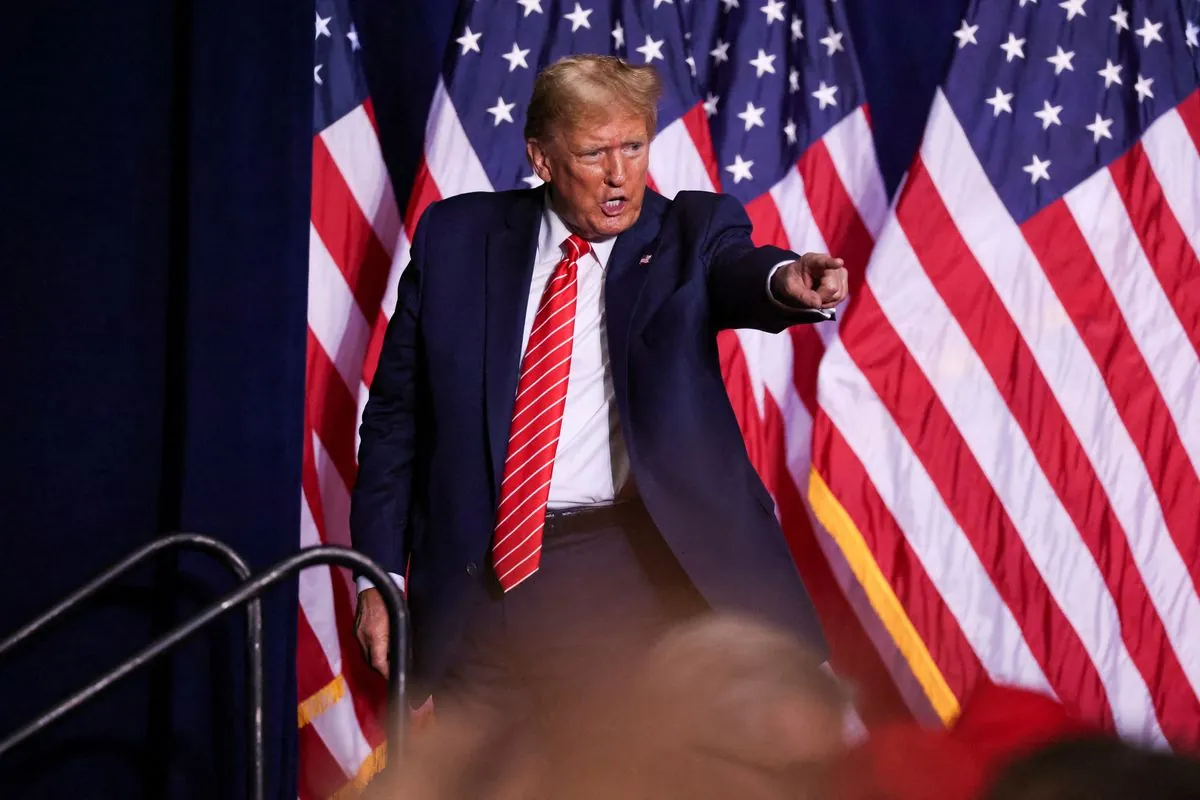In recent months, Donald Trump has faced two apparent threats to his life, prompting him and his supporters to link these incidents to Democratic rhetoric. This strategy, aimed at neutralizing criticisms of Trump's own controversial statements, has not yet succeeded in drawing equivalence between right and left-wing rhetoric, according to a new CNN poll conducted by SSRS.
The survey reveals that Americans broadly view political violence as a major concern. Both Democrats and Republicans express slightly higher levels of worry compared to independents. Notably, Democrats are 8 percentage points more likely than Republicans to believe that the tone of political discourse encourages violence.
The poll's most striking finding relates to the potential impact of the November 2024 election outcome on political violence. A majority of respondents predict that a Trump victory would exacerbate the situation, while opinions on a potential Kamala Harris presidency are more divided.
Partisan divides are evident in these responses. Two-thirds of Republicans anticipate increased violence under a Harris administration, while nearly 90% of Democrats foresee worsening conditions if Trump wins. Independents largely align with the Democratic perspective, with most expecting violence to escalate under Trump but improve or remain stable under Harris.
"The most significant political violence that the United States has seen over the past few decades (if not since the Civil War) was the riot at the Capitol on Jan. 6, 2021."
This event, unequivocally linked to Trump's false claims about the 2020 election, marks the first breach of the U.S. Capitol since the War of 1812. It underscores the potential consequences of inflammatory political rhetoric and the importance of the peaceful transfer of power, a cornerstone of American democracy since the nation's founding.
The current political landscape reflects increasing polarization, with the two-party system dominated by Republicans and Democrats experiencing growing ideological divides. This polarization is further exacerbated by the spread of misinformation on social media platforms and the rise of "fake news" narratives.
As the 2024 election approaches, concerns about political violence intersect with other critical issues. The Department of Homeland Security has identified domestic violent extremism as a significant threat to national security. Meanwhile, the U.S. intelligence community continues to warn about foreign interference in elections, highlighting the complex challenges facing American democracy.
The impact of political rhetoric on public opinion and behavior cannot be understated. While the First Amendment protects freedom of speech, including political discourse, the concept of "stochastic terrorism" – using mass communications to incite random acts of violence – has gained attention in recent years.
As the nation grapples with these challenges, the role of institutions such as the Federal Election Commission in regulating campaign finance and the Electoral College in determining presidential election outcomes remains crucial. With voter turnout averaging around 60% in recent presidential elections, the engagement of the American electorate will be pivotal in shaping the country's political future.
